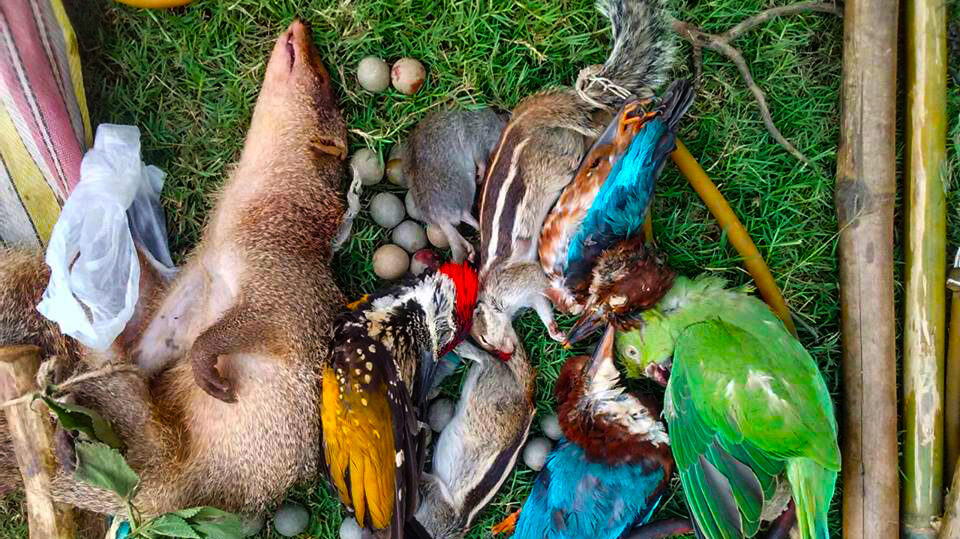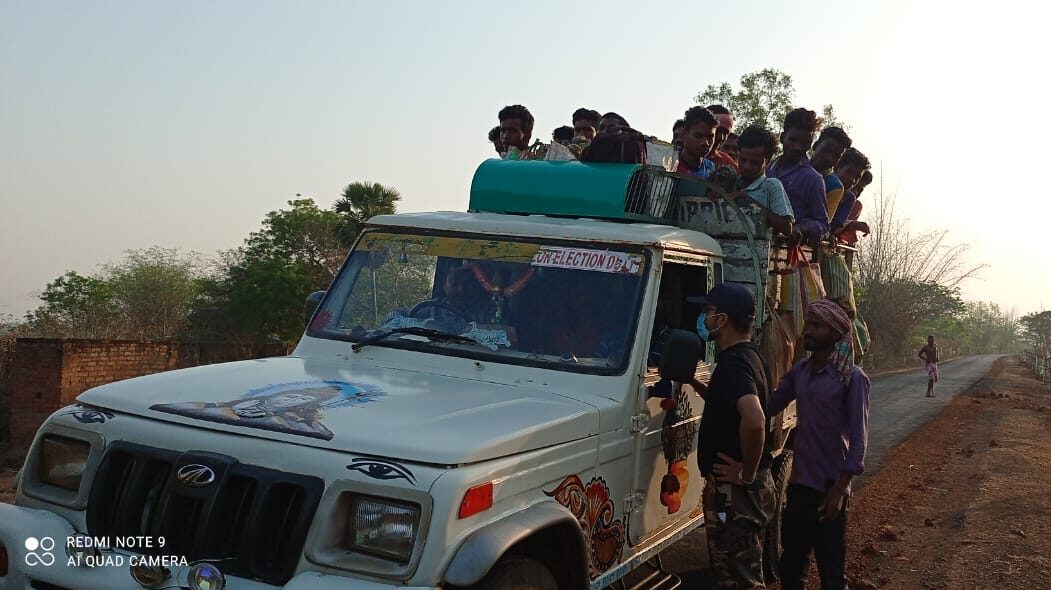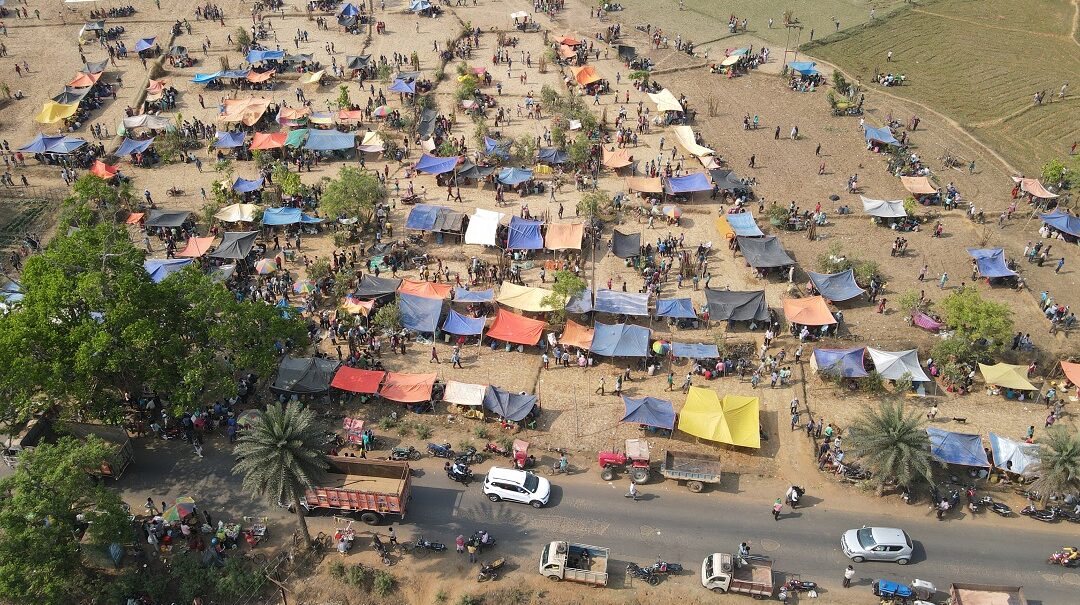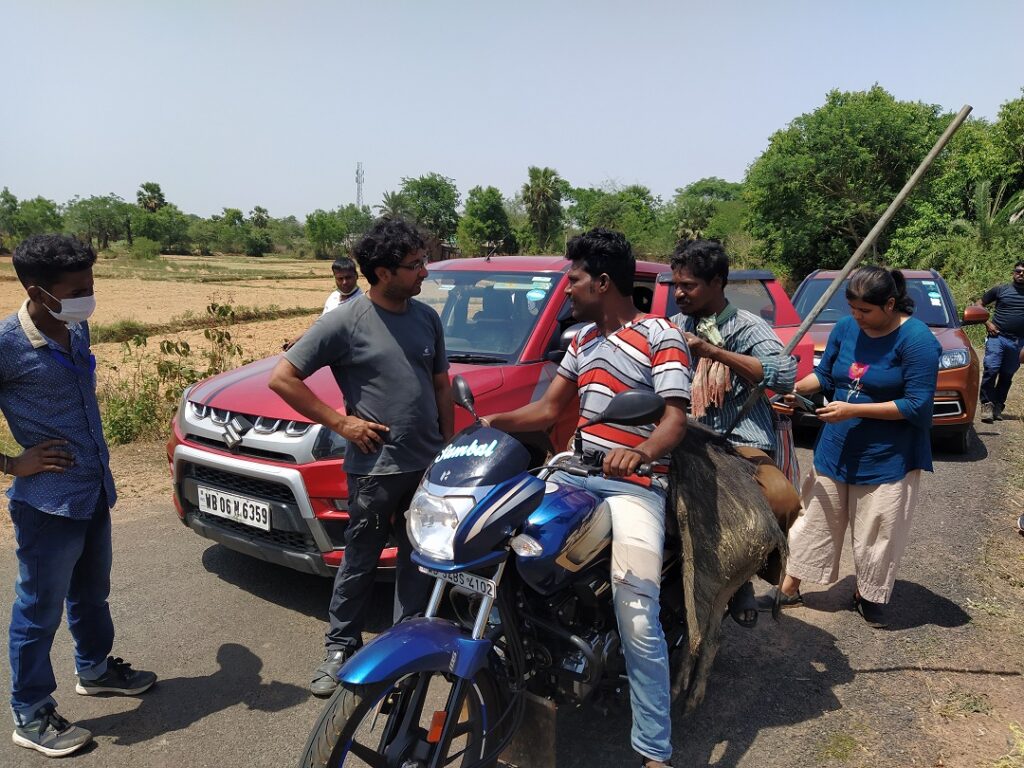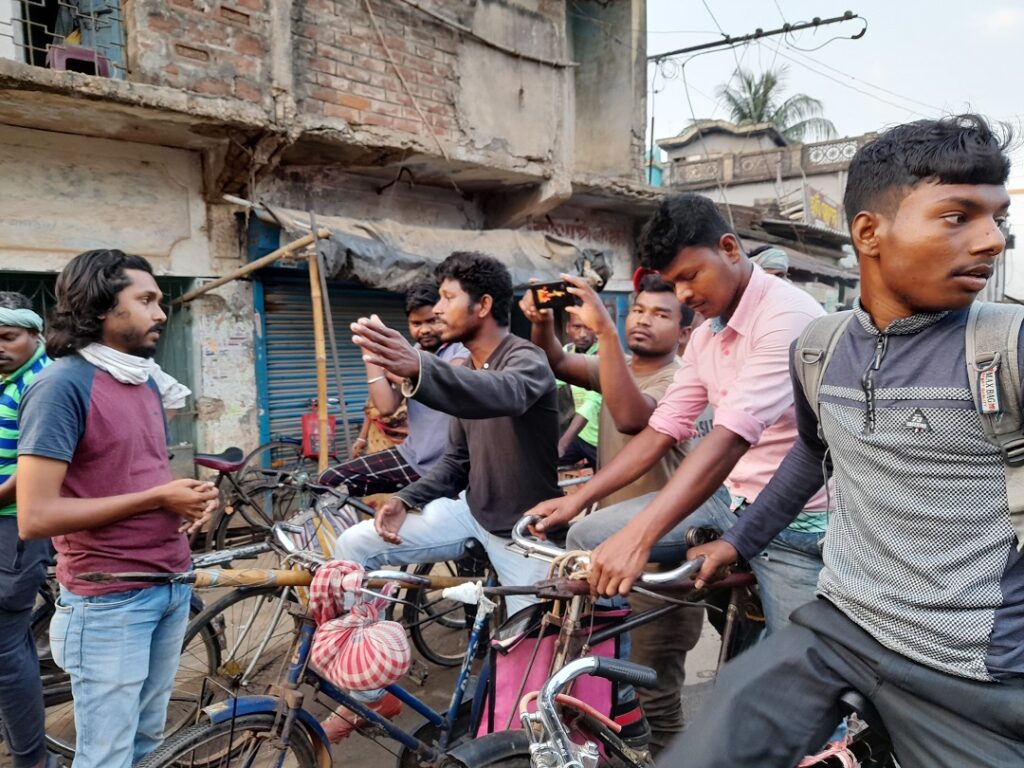What are Ritual Hunting Festivals of South Bengal?
Every year, various hunting festivals are celebrated in rural Bengal. On these occasions, huge groups of hunters get together and set out into various patches of forests, wetlands & grasslands, to kill any sort of wildlife that crosses their path. Birds, mammals, reptiles – anything that moves is fair game. While this is an old tradition in rural Bengal, over the last 10 years, with better mobility through roads and trains and better phone connectivity, the hunting groups can now reach far off places – richer locations with more biodiversity. This has lead to a fast and sharp loss of biodiversity in rural Bengal.
WHEN DOES IT HAPPEN?
We have documented over 50 dates with thousands of hunters participating in each festival. A few “traditional” hunting festivals used to take place a few days in the spring and summer months. But the growing fascination for hunting, especially among the youth, means that there are now a lot more hunting occasions which are not traditional in nature.
WHO ARE THE HUNTERS?
While these hunters were traditionally from certain tribal communities, that is far from the truth today. Regardless of whether or not one is tribal, men of various communities join in just for the fun of it. It’s like a trend that has caught on and spread, especially among young men. So today, we cannot even say that West Bengal’s hunting festival is limited to the traditions of tribal communities.
The hunters come from different walks of life. We have found many hunters who are students, shopkeepers, carpenters, electricians, farmers, schoolteachers, factory workers etc. Again this establishes the fact that the hunters are not dependent on hunting for livelihood.
WHY DO THEY HUNT?
Simply for the joy of it. It’s a sport, a source of entertainment, a day out to have some fun finding and killing animals. The hunters may use religion and culture as an excuse to go hunting, but by their own admittance on various other occasions – the activity is NOT at all need driven. They do not depend on wild meat for subsistence. They simply enjoy the act of hunting.
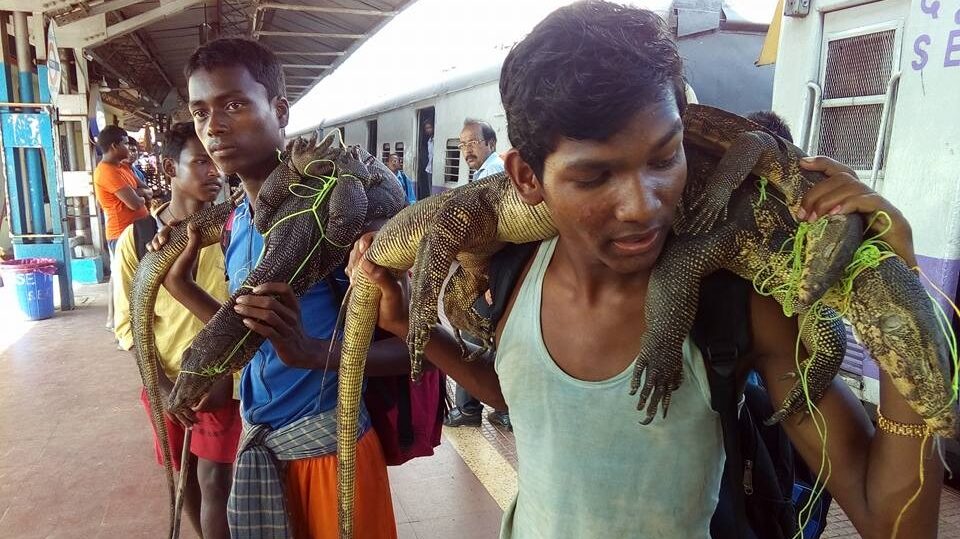
during the Faloharini Kali pujo hunting festival in June 2016
As a new development, the skin and body parts are sold off, which fuels illegal wildlife trade. During investigations by team HEAL, it was found that the skins of monitor lizards were considered the most lucrative product for sale.
WHAT DO THEY HUNT?
Unfortunately, this fun comes at a huge cost. All species, representing the entire spectrum of biodiversity of the region are slaughtered. Thousands of wild animals and birds – all protected under the Wildlife Protection Act, 1972 – such as fishing cats, jungle cats, civets, jackals, mongoose, monitor lizards, snakes, various birds such as owls, kingfishers, woodpeckers, bitterns and countless other avian species are hunted. Nothing is spared.
Even a straying tiger was hunted in 2018 (See https://tinyurl.com/yxrtrkao )
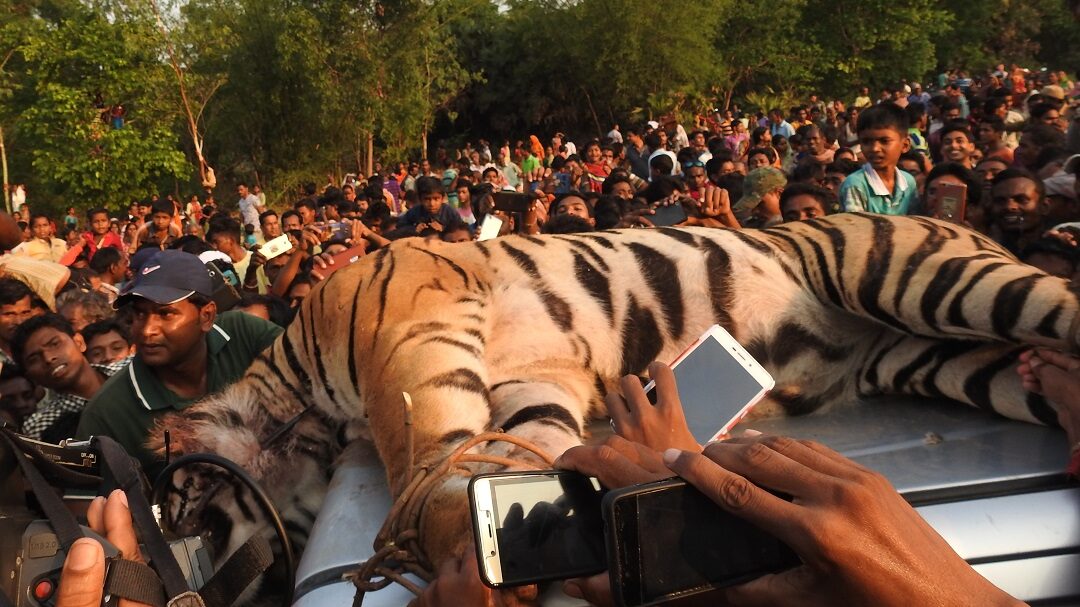
WHAT DOES THE LAW SAY?
Simply put, hunting in India is completely ILLEGAL. All forms of hunting are prohibited under the Wildlife Protection Act, 1972.Wildlife Protection Act, 1972 makes hunting a cognizable non-bailable offence punishable with imprisonment which may extend upto 7 years and/or fine which may extend upto Rs. 25,000.
The law does not provide any exemption for traditional or ritual hunting. The Scheduled Tribes and other Traditional Forest Dwellers (Recognition of Forest Rights) Act, 2006 specifically outlaws traditional hunting of wild animals. Participating in hunting festivals is a major wildlife crime.
The Calcutta High Court has passed orders in May 2018 and April 2019 placing a complete embargo on all hunting activities in the garb of ‘rituals’. The Court has directed the West Bengal state authorities and the railways to take all possible steps to prevent ritual hunting of wildlife in the districts of South Bengal. These orders were a result of two writ petitions filed by H.E.A.L (by way of public interest litigation), demanding immediate action against the mass slaughter of wildlife in various districts in South Bengal.
